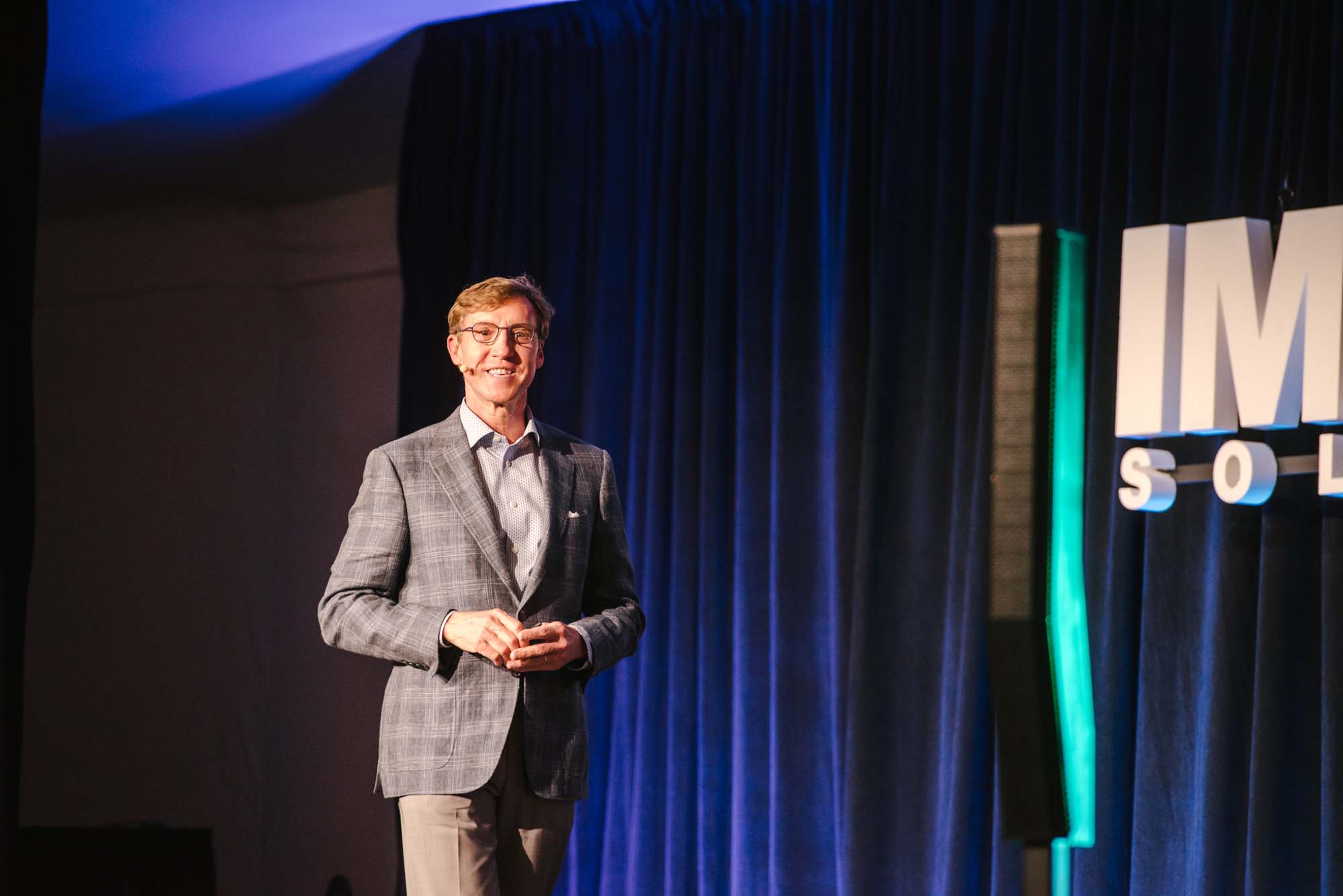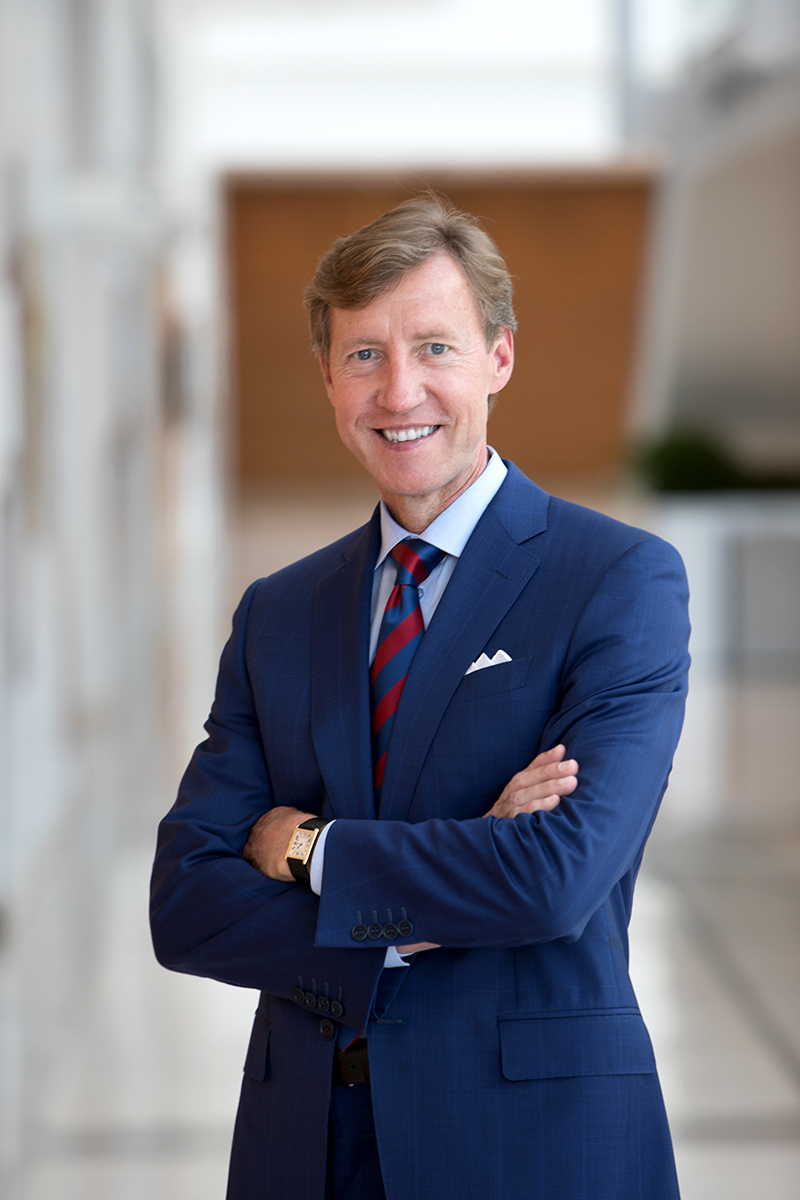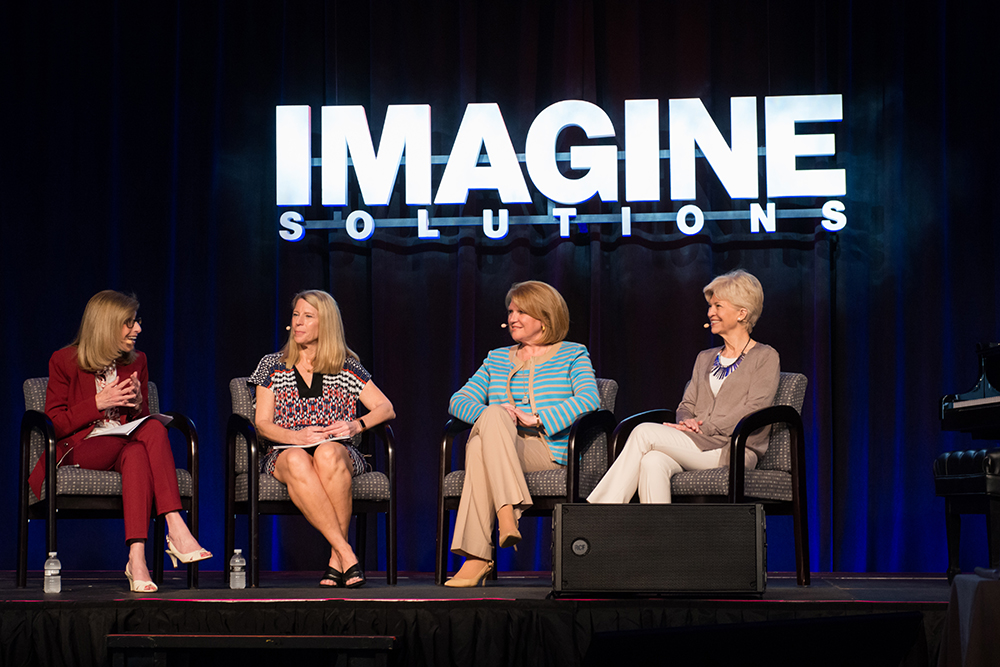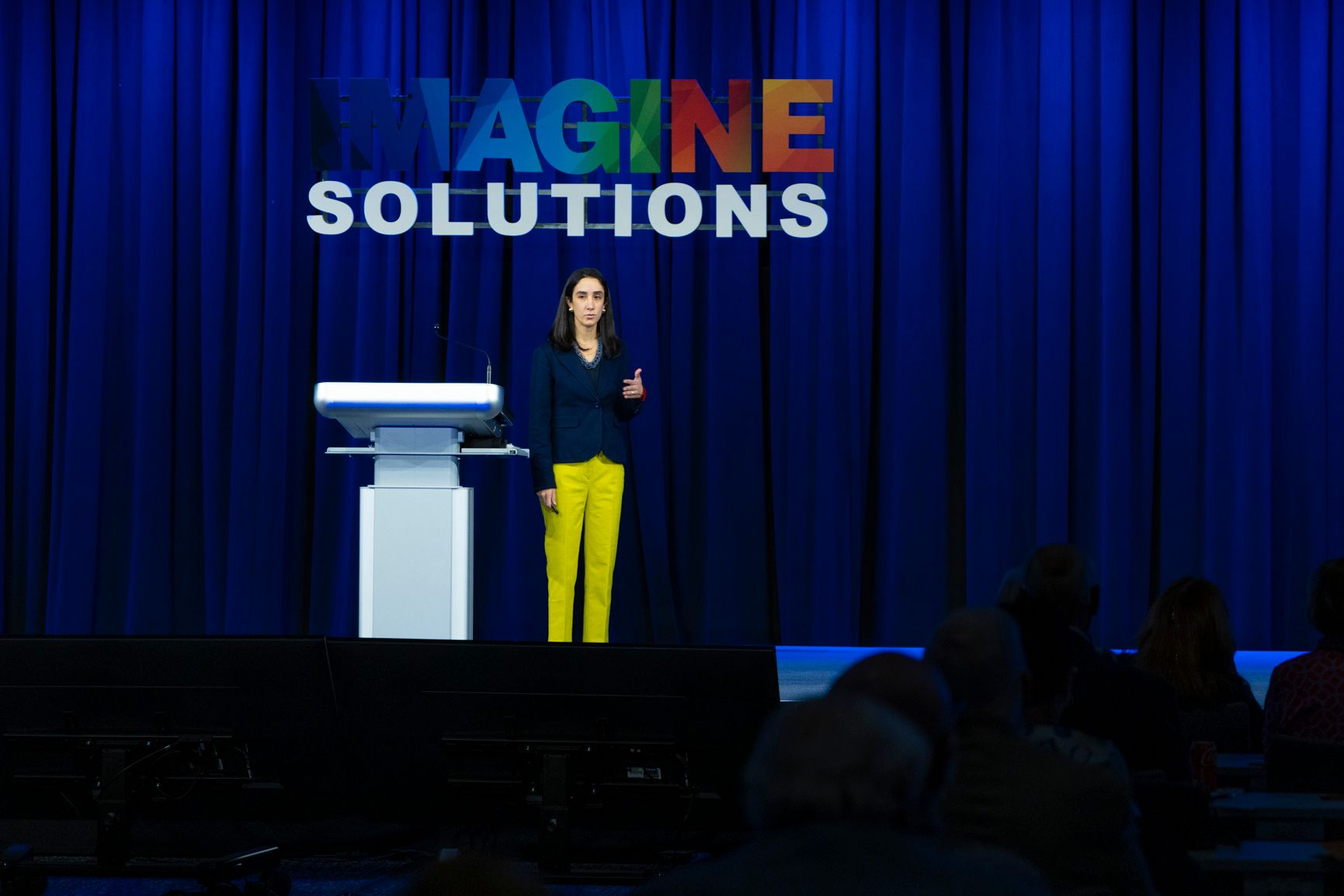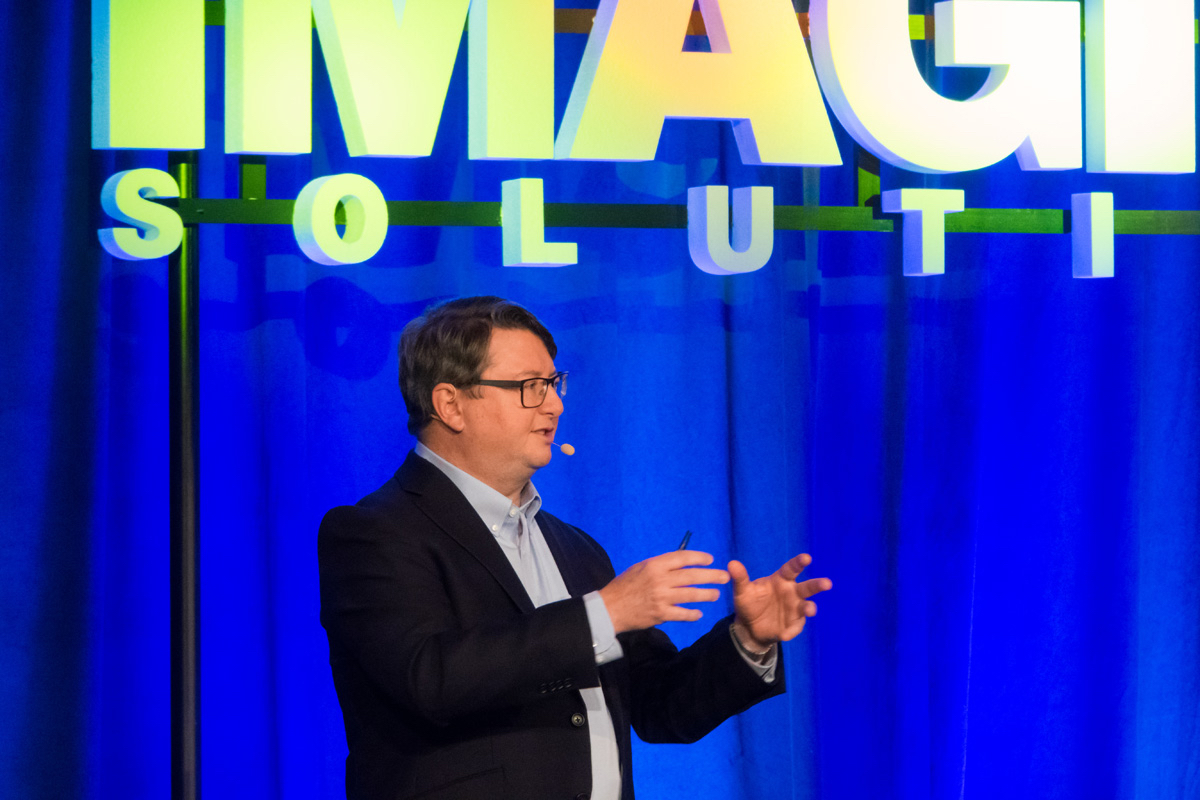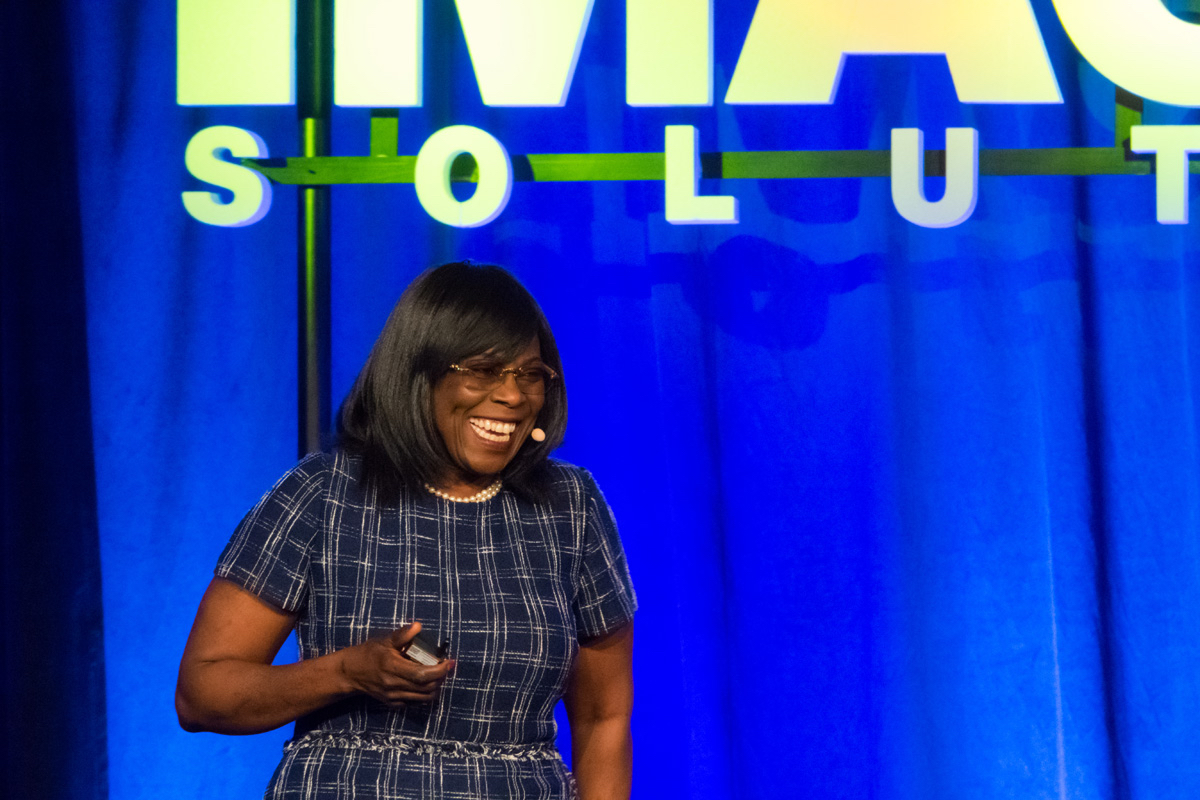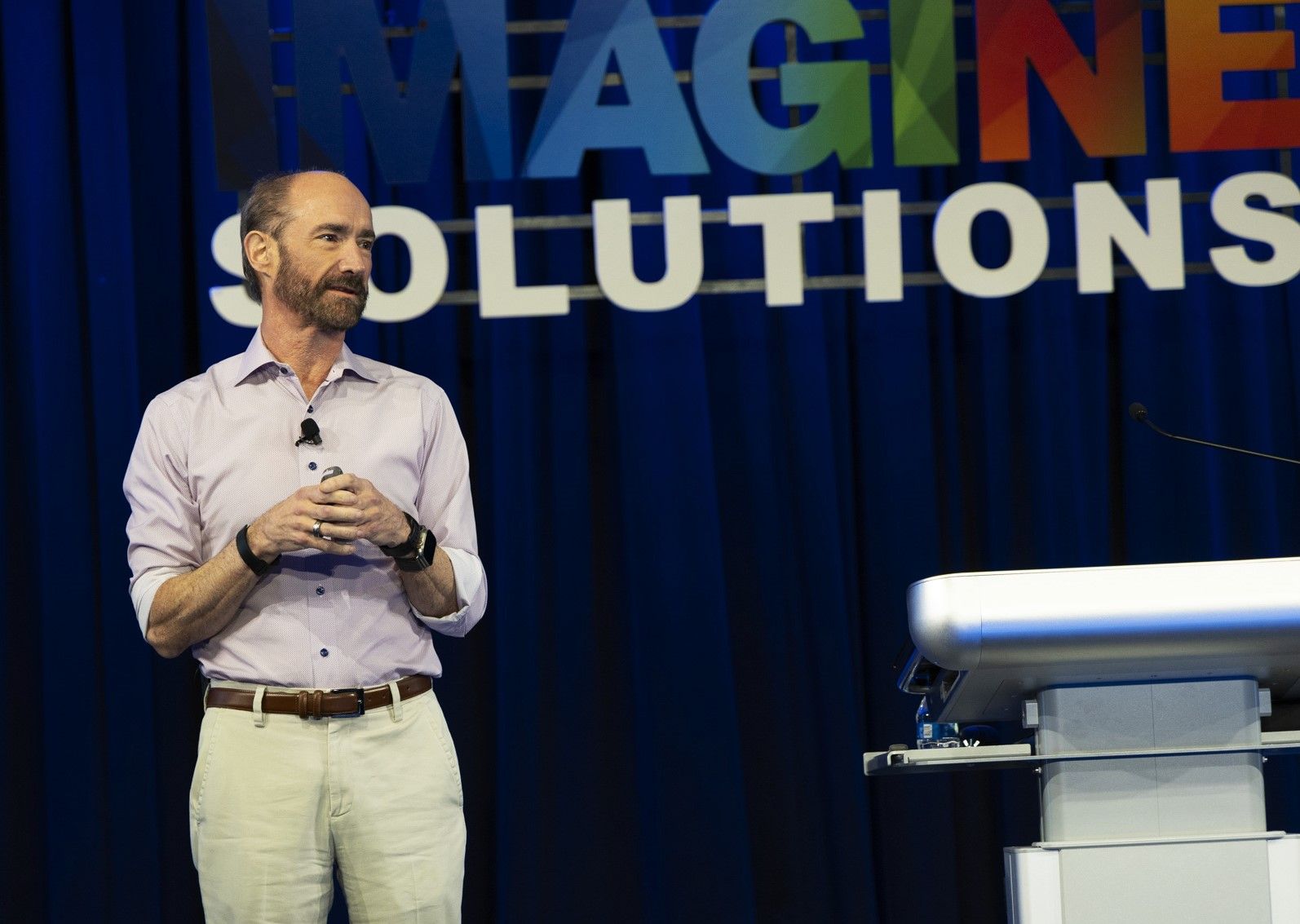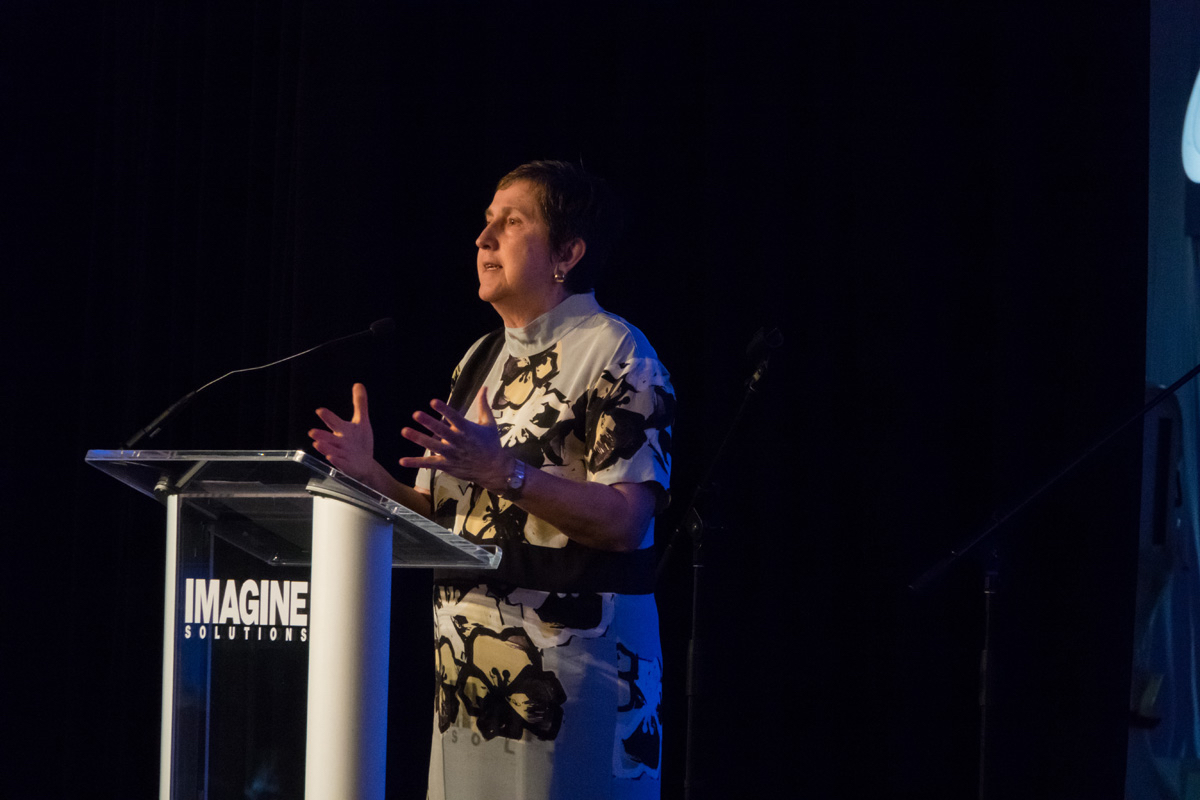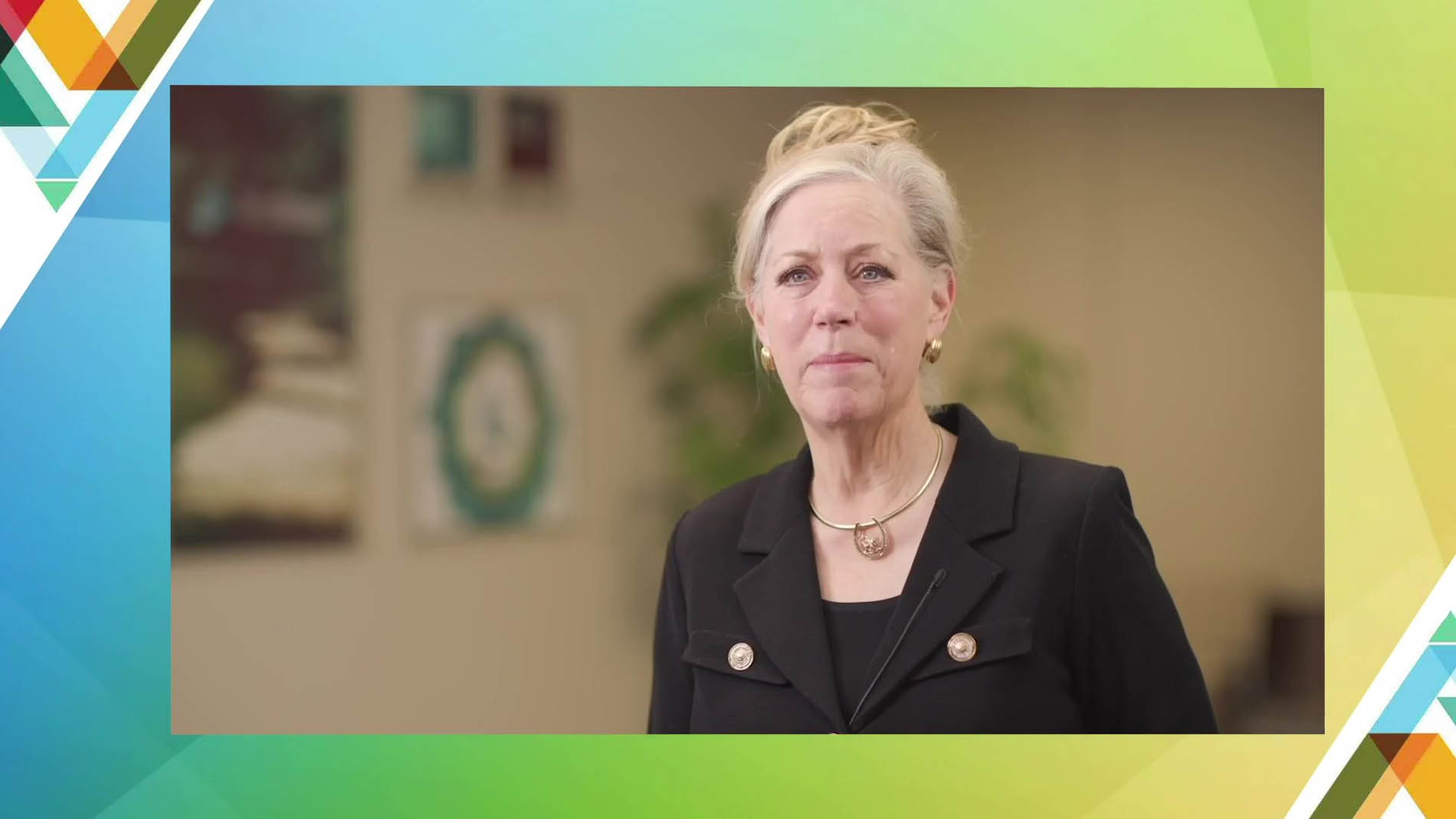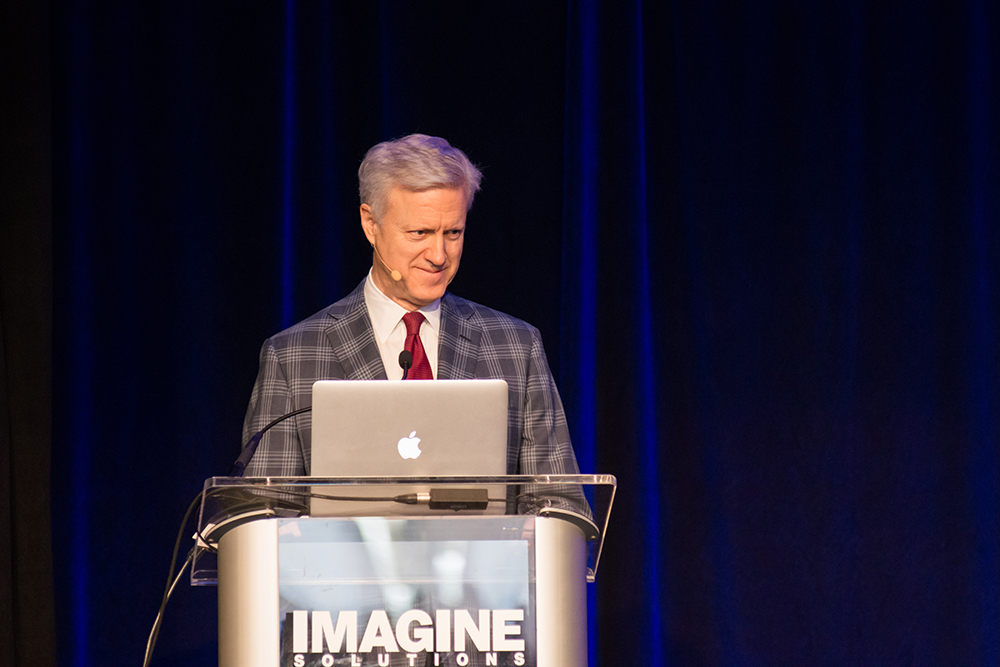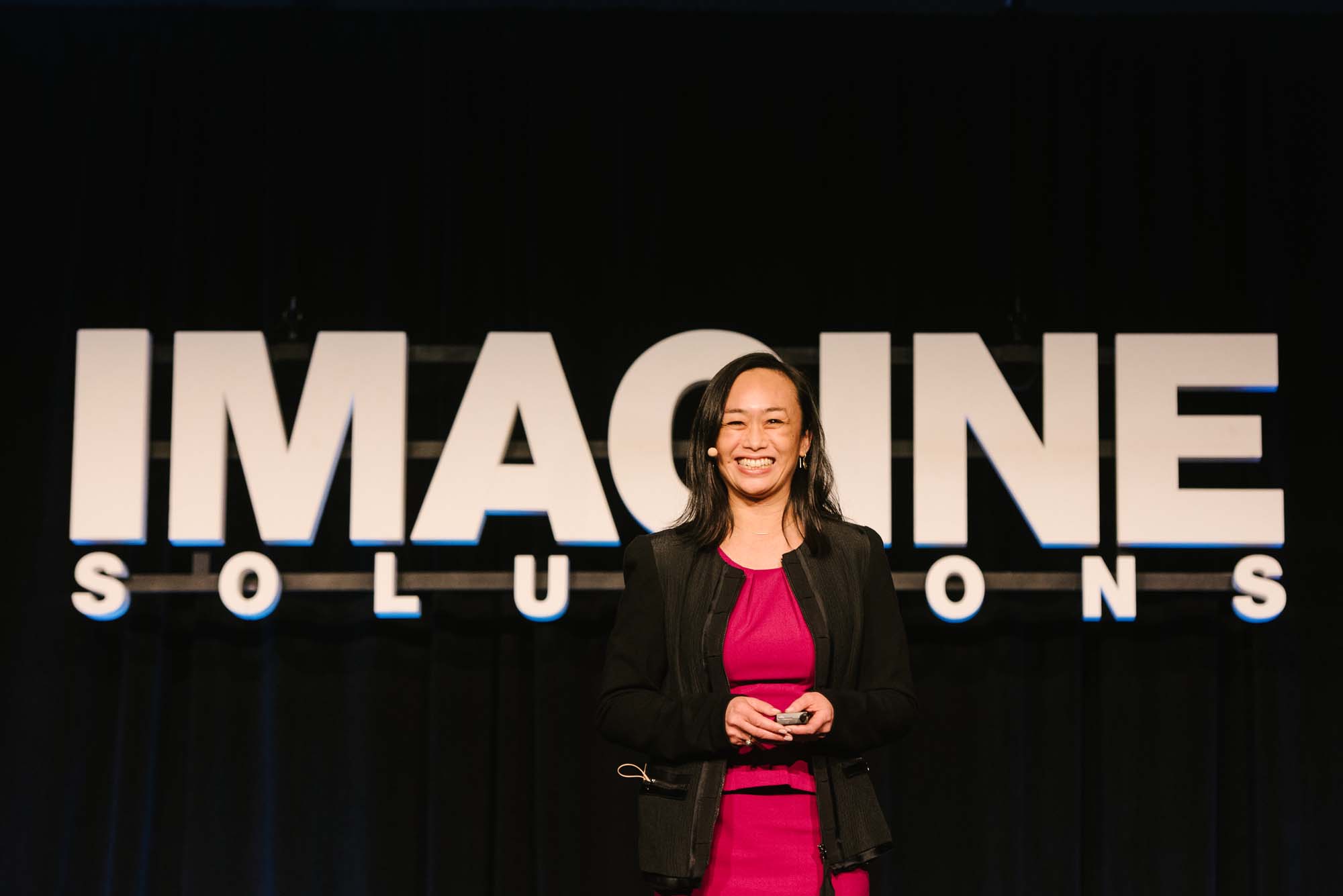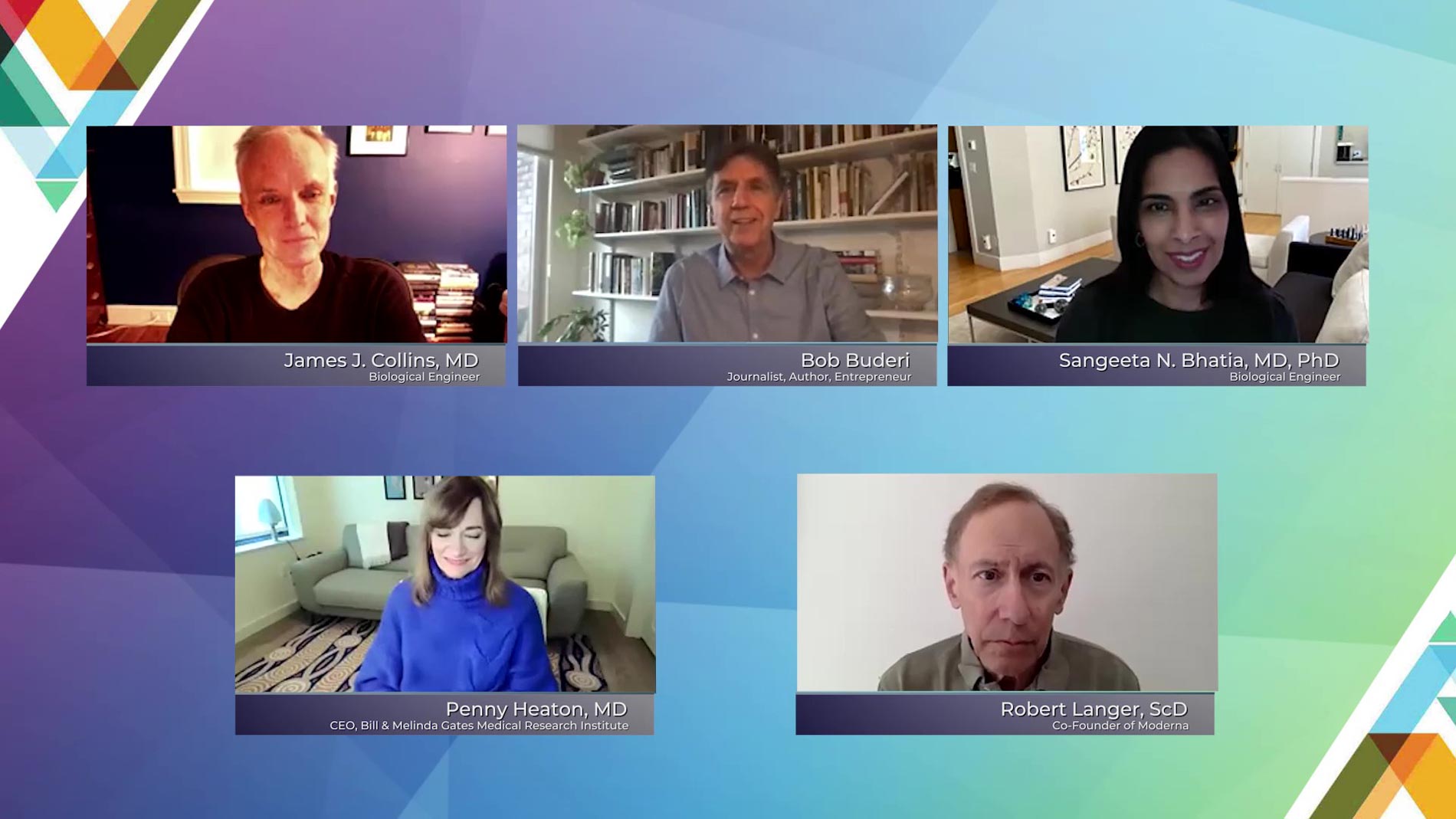The Future Doctor
Larry Jameson Dean of the Perelman School of Medicine, University of Pennsylvania discusses the future doctor and what our hospitals will look like and experience.
00.00
please welcome to the stage to talk about leadership and innovation in the world of medicine and the training of our doctors dr. Larry Jameson Dean of the Perelman School at the University of Pennsylvania come on up you fell down until four o'clock we're in the homestretch I want to add my thanks to Ronnie and Randy as Tyler mentioned I oversee Penn medicine it's a large enterprise there are 8,000 doctors we've got about 800 PhD students 1,400 residents and fellows and training and 800 medical students there's so much I could share with you today but I want to concentrate on this topic of training tomorrow's doctors for the future and I think we're in good hands I'm really
01.02
going to concentrate on two major themes today only two the first is that the profession of medicine is a calling you've heard a lot about change I'm going to talk a lot about change but there are many enduring features about being a doctor and I want to emphasize them the second thing I want to do is to fast forward into the future and not forecast but back cast if you've ever heard of this strategy you go to someplace in the future and you look back from that point and ask if I'd only known then what I know now what might I have done differently so we'll go through that exercise so let me just bring all of us to the same point of thinking about the importance of this subject if it isn't obvious already so if I asked you what is your most
02.02
important two asset now if I'm not on the stage many of you are thinking about your retirement investments your real estate investments your friends your family and those are all super important but I think you won't hesitate to agree that for all of us for each of us health is our most important asset and if you think and turn about how much time and effort do you spend on your investments and your businesses on your real estate and how much do you spend thinking about your health you'll see that maybe there's room to rebalance the portfolio so one of the things I want to emphasize towards the end is how I think in I'm gonna pick the point of time 40 years from now in 2060 how much more of the
03.01
control of healthcare is going to be in the hands of empowered patients because of access to information and because we've redesigned the system and I'll give you just one example if you come into the doctor's office and you have a physical the yearly physical whereas we heard this morning you wait in the office for an hour and you see the doctor for about 20 minutes you leave but how much time in the course of that year do you spend doing things that affect your health and the answer is 8,000 hours so we've each got about 8,000 hours in the year when things are happening that are very relevant to our health and so that's that's where it takes me to the point of empowering patients let me turn to the message that I want to convey with the entering class of 2020 and I'll always remind them that
04.04
our field is a calling there are other fields that resemble this and the clergy but there's an intensity to what goes on in medicine and if you don't see it that way you're going to have a difficult time being effective if even surviving the field so just to give you perspective think about the typical morning of a doctor in the intensive care unit or the nurse in the intensive care unit for that matter or even in a clinic you might make rounds on the first patient where there's been a new diagnosis and you've had to communicate the significance of this new diagnosis to the patient and their family you go to the next room and there's a family conflict happening where someone feels guilty and is blaming another one and
05.00
like it or not you're in the middle of that you go to the next room and you've got a professional conflict where you and one of your consultants really don't agree about the right course of action and so most doctors and the course that this morning might round on 20 patients if they're in clinic they might see 10 it's a very intense experience and you really have to be dedicated to it you have to love your patients love the profession and prepare yourself for what's in store so we now spend a lot of time with the medical students in simulation of these different examples how do you communicate bad news how do you resolve conflicts with families so they're not experienced in it and thinking this is only happening to me it's a prepared experience that we want the medical students to go through and to become increasingly effective at
06.01
managing and in the same way that I'm going to talk to you about a lot in the field of wellness we spend a lot of time with medical students on taking care of themselves because we know there'll be more effective physicians and they can legitimately communicate features of wellness to their patients and we heard from the tabali brothers about how they go into a different place when they can compose or play music I thought it was just a beautiful and sincere description and we've got at the end of every day in medical school a class where the students go through meditation and they try to get into a different place and it should be a habit that you adopt long term because to be creative to be resilient it's one of many different tools one could use so I've also got a
07.03
secret about this calling I want to share with you medicine is a team sport there was a time when you could pretty much be in solo practice maybe have a nurse who worked with you a partner to share call but the complexity of the field is such that now you need to surround yourselves with specialists in infectious disease in radiology and not just a radiologist but a radiologist who specializes in neuroradiology or abdominal CT or mammography a pathologist so this is the secret like everyone else who plays on teams doctors want to be on a team where everybody is as talented as they are so you're going to have in the field although it's a very talented field a plus a minus B players and when you're
08.00
looking for a doctor whether it's primary care or a specialist you want the a plus the a team because it's like birds of a feather anytime you get advice about one of your patients you want to be able to rely on that advice as being up to date very thoughtful you've gone through the differential diagnosis so part of this profession is for doctors to make sure that we're all continuously learning we're all continuously supporting one another because we can't do it alone anymore and if you go into surgery there's the pre-op group the anesthesiologist the rehabilitation group afterwards it's very much a team sport so the second thing I wanted to talk about is the back casting so this is where we go from the present day and I'm just going to use you know my own experience
09.00
you see this slide from 1980 this is my medical school class everybody looks super young they were super young but they've also got to practice medicine for 40 or 50 years so I I wrote down the first names of all of my classmates because I knew I would forget them after we all left and went to different places but now as the Dean at the Medical School each year at graduation I asked the 50 year class reunion to come to the graduation ceremony and one of them gives a speech to the graduating medical students and the speech is about my career as a physician what pearls of wisdom do I have for you as you embark on this fantastic journey well I can tell you that the the first theme is always about medicine as a calling about empathy always the first theme the second one is
10.03
about managing change in my 40 or 50 years a lot of change happened and it can be managed it can be managed effectively so as I think about what's going to happen 40 years from now it'll be 2060 certainly artificial intelligence assisted intelligence which we heard about this morning it's going to be a big part of the story many doctors are fearful of this they think it's going to replace me it's going the machines will be smarter than I am it's going to be impersonal I actually welcome it I say bring it on because we need help there is so much data and information out there we can't possibly manage it all you have to think about is the genomic information as one example where we can now sequence the entire genome not just
11.01
the coding parts of the genes into proteins but all three billion bases you can't manage that you need artificial intelligence to help sort through it and identify the changes that are actionable that need they need your attention what about the radiologist who has to look at a film every five minutes or so or even even faster every 90 seconds sometimes if it's been pre-processed look in this region there's something I want you to pay attention to it doesn't mean you ignore the rest but it's assisted I can see a day when all of us have photographs of our body this processed over time you get it every six months or every year and an AI program says there's a region on the back of your right leg that I think you should take a close look at we've heard examples where
12.01
listening to one's voice pattern could predict risk of Parkinson's disease maybe autism spectrum disorder in children so we should welcome these assistant intelligence devices and I see this as one trend so I want to mention a few other trends that I think are taking us tours 2060 the next one is it's not a trend you might have thought about but if we think about the talk this morning on the cosmos the physicists have been focused on stars and planets and their patterns of circling in our case the Sun or how they move in the universe for centuries with a particular focus since 1900 and I'm struck by the fact that even though we know that there's a 24-hour light cycle on earth where all
13.03
of evolution has occurred everything that's evolved on this planet has evolved with a day/night cycle and yet we haven't until recently paid much attention to what I call circadian rhythms so about 20 years ago a group of scientists discovered a gene called the clock gene it's in the brain in many ways it's the master pacemaker of our physiology it recognizes light and dark it's hardwired just more than 24 hours and when it was found everyone said well of course there's a 24-hour pacemaker in the brain we all evolved on earth well last week a scientist at the University where I worked the University of Pennsylvania eliminated that master clock gene and a genetic model and mice and lo and behold there are clocks in
14.03
multiple tissues that are left secondary clocks and it's really not that surprising I mean why wouldn't your metabolism and your liver metabolism in your skin why wouldn't all of these systems be somehow tied to the 24-hour cycle of sleep and wakefulness when you're eating when you're not when you're active when you're not temperature changes even seasonal changes for that matter so how is this relevant to health well I predict in 2060 that we will come to the realization that we've been fighting the circadian rhythm in modern time we've been fighting evolutionary pressure over millions of years with shift work with travel working late into the night getting up early in the morning with our eating patterns we
15.01
can't fight this many years of evolutionary selection and I think one of the things we'll get to is the need to pay attention to it and let this be part of our normal physiology except that we're hardwired around 24-hour cycles and people talk about will there be different timing for chemotherapy treatments are there different patterns for nutrition I think all of this will be part of the story and I'll come back at the very end to talk about what we're doing in our new hospital to plan for manipulating light-dark cycles the next thing I'd like to talk about is the ability to not only read the genome but to modify it it's come up a couple of times in the course of the day and it's been a tedious process honestly the Human Genome Project had so many hopeful predictions of the pace at which we
16.00
would be able to diagnose and treat genetic diseases but it's honestly been quite slow until this breakthrough with CRISPR cast 9 this is the inside combination that allows you to selectively hit-and-run go in and modify the genome now there's it's been controversial particularly for germline editing where you could permanently change the genome across generations but there are huge opportunities to use it to correct genetic disorders and we've heard about sickle cell anemia as an example there's one nucleotide change in sickle cell anemia is caused by a disorder of the bone marrow the blood cells so if we can harvest the progenitor blood cells and edit them back to normal and put them back you could potentially I think very likely correct this disorder but here's another
17.01
example there are rare individuals who have mutations of an enzyme called pcsk9 and they essentially have no vascular disease no coronary disease no risk of stroke a or de can yer isms and people who have identified an antibody that can be used to inhibit this enzyme it's very expensive therapy for high-risk individuals but there may be a day when we decide why don't we genetically edit this enzyme out by giving a vaccine where virus goes to the liver Edinson enzyme and you essentially eliminate vascular disease now there are a lot of steps in-between but we're looking out 40 years you know what would be the consequences of editing it out what would be the cost of the vaccine if you don't get vascular disease what do you get instead you know
18.02
probably cancer neurological disorders but these are the kinds of things that I think the promise of genetics is now delivering okay another trend I want to talk about is immunology and University of Pennsylvania is where the cart t-cell targeted therapy for leukemia was developed it's unbelievably powerful I'd love to tell that story of time allowed but I just will say it's the tip of the iceberg so we have faculty who are not only going after leukemia and pancreatic cancer and glioblastoma but they're starting to think outside the box how could we use this therapy to attack the part of the immune system that causes autoimmune diseases so could you selectively eliminate the immune cells that cause lupus pemphigus type one diabetes one of our faculty has
19.03
developed a way to use the immune cells to eliminate cardiac fibrosis one of the major causes of end-stage heart failure and kidney disease so pay attention to what's happening with the immune system and as a doctor I'm embarrassed that we have so few really good tests of the state of the immune system so when you got your measles vaccine as a child did it work do we have any way to test for that that's easy Randi talked about sensors I mean one type of sensor I would love to see is one that could monitor the immune system in real time and give give all of us information that you've got an early stage infection you should take an antibiotic you should take this particular antiviral the vaccine that you got is wearing off I I don't think it's science fiction
20.00
that we will have these kinds of sensors I can also imagine sensors that can detect cancer early circulating tumor cells they suggest that it needs to be studied and intervened so in the same way that our cars have sensors i I think it's not a crazy idea that we will have these kinds of sensors and the main reason is not to be so fanatic about technology it's because early detection is the way to intervene in disease most effectively so I'm gonna close now and just talk a little bit about how we're thinking about shaping the future with the new hospital that we're building in Philadelphia so just for perspective this is the the museum is to the left you can see that the architectural design by Foster and partners in London was meant to respect this several
21.02
hundred year old museum with the curvature of its amphitheater but if you want a sense of scale the building to the right is our research building which is over 150 yards long so we wanted to connect biomedical research with the hospital and we wanted this hospital to be future proof because it needs it cost 1.5 billion dollars so it needs to last it needs to last for 40 50 75 years so as we go into the rooms we've we've tried to make it very easy to update it over time we want to brain the MRI to the patient we've actually got portable MRI machines that we're testing now so that if someone's had a stroke we can bring it right in you don't have to roll them down with all of the tubes and equipment we want to put the MRIs in the operating room so the neurosurgeons can visualize
22.02
the operation in real time while the procedure is carried out I talked about coming back to the circadian rhythm so one of the few things I was able to contribute to this design is that the the windows and the side are going to have controlled lighting because we want patients to be able to sleep with at least as much as they can because elderly sick people have a lot of psychosis it's actually incredibly common like 50% of people admitted with serious illness above a certain age will have psychosis and it's very disturbing so we want to maintain you know all the different features of nutrition circadian rhythms and thinking about Norman Lear and his emphasis on laughter he's added a number of years to my life by watching episodes of all the family and many others and trying to stay connected to your family it's what this
23.01
wall the media wall is all about the doctors can explain medical procedures with this wall but you can also put photographs if your family email and things like that could be up there to keep you connected with the outside world while you're in the hospital so I'll just close by saying that the students of 2020 who will be practicing in 2060 are well-prepared there were 8,000 applications for our 150 slots it's a select group they're incredibly smart they're focused on teamwork they want to be lifelong learners and we're all in good hands with them thank you so much for your attention you

